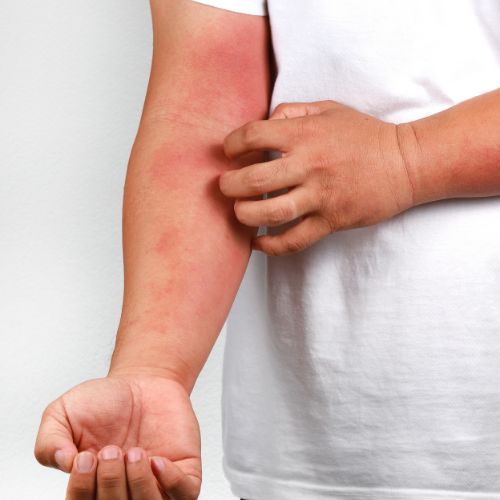what you should know about fish allergies in 2023

A type of food allergy known as fish allergy happens when the immune system of your body overreacts to proteins found in fish. One of the most prevalent food allergies in adults is fish allergy, which affects 1% of the population. Children are less likely to develop it, but it can happen at any age.
the signs of a fish allergy:
Fish allergies can cause mild to severe symptoms. The most typical signs are as follows:
- Hives
- Itching
- swelling of the tongue, throat, lips, or face
- wheezing or breathing issues
- Continent pain
- Diarrhea
- Vomiting
An dangerous allergic reaction known as anaphylaxis
Though the precise etiology of fish allergy is unknown, it is believed to be a result of both hereditary and environmental factors.
genetic influences:
Fish allergies are more likely to develop in those who already have other food allergies, such as peanut or shellfish allergies. This shows that fish allergy may have a hereditary basis.
Genetics:
People who already have allergies to other foods, including peanut or shellfish, are more prone to acquire a fish allergy. This shows that fish allergy may have a hereditary basis.
Environmental factors:
Individuals who are prone to fish allergy may experience symptoms of the allergy when exposed to environmental factors like fish proteins. For instance, young infants who consume fish proteins in their diet are more prone to become allergic to fish.
how a fish allergy manifests:
A fish allergy sufferer's immune system overreacts to the fish proteins when they consume seafood. Immunoglobulin E (IgE)-class antibodies are made by the immune system. These antibodies bind to mast cells and fish proteins, which are present in all tissues.
Mast cells release histamine and other substances when the IgE antibodies connect to them. The symptoms of an allergic reaction are brought on by these substances.
Treatment for an allergy to fish:
Fish allergy cannot be cured, but there are steps you can do to manage it and lessen allergic symptoms. The most crucial thing is to stay away from any fish and fish-related goods. Fish gelatin, fish sauce, and fish oil fall under this category.
Your allergist may tell antihistamines or epinephrine (such as an EpiPen) to assist treat your symptoms if you do consume fish.
Being allergic to fish:
- It can be difficult to manage a fish allergy, but it is achievable. Here are a few advices:
- Always examine food labels to look for fish and fish products.
- Be mindful that fish can be found in unanticipated locations, such as marinades, sauces, and salad dressings.
- Inform your waitress of your allergy when dining out and request that they check the contents of every dish.
- Keep an EpiPen or other epinephrine auto-injector handy at all times in case you experience an unintentional reaction.
Conclusion:
Fish allergy is a dangerous problem, but it can be controlled with the right treatment. A fish allergy should be diagnosed and treated by an allergist if you suspect you may have one. Fish allergy is a topic of intense current research, and there is hope for novel and improved therapies in the future.

Comments
Post a Comment